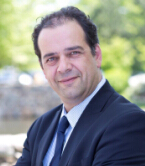We are at a seismic moment in two major ways: how nations care for their citizens’ health and how businesses invest in their own and their consumers’ healthy futures.
Just 40 years ago life expectancy in Asia was slightly above age 50. In 2000, the continent’s 210 million people aged over 65 could expect to live just another five years, to 70 on average. By 2050, it’s estimated by the United Nations that the majority of people within this demographic – which is expected to have quadrupled - will live to at least age 77.
As a result, demands for care related to chronic illnesses such as cardiovascular conditions, cancer, dementia, diabetes and respiratory diseases including COPD and asthma, will grow exponentially. So will the need to invest in access to care and prevention, alongside cost containment and healthcare programmes for an ageing, more exacting population.
This is true not only in Asia but throughout emerging markets. It is within such a challenging environment, rich with opportunities for partnership and investment, that the World Economic Forum will seek to elevate the role of health in driving socioeconomic growth by engaging three stakeholders—governments, businesses and communities.
Such a multistakeholder community of interests and purpose holds the promise to bring effective treatment protocols to some of the planet’s most deprived areas. Hospital and home-based treatments for communicable disease and chronic illnesses that we take for granted in the West can become the mainstay of Chinese healthcare systems (the World Health Organization estimates that 10% of China’s population is diabetic, and largely so undiagnosed). And the quality of life in old age that consumers demand with increasing vehemence from Kolkata to California could surpass all expectations.
This requires cooperation and partnership, boldness of thought and action, a willingness on the part of governments and business to embrace shared goals and to deliver solutions to the most pressing challenges of our societies with greater agility.
This also calls for the three distinct stakeholder groups to put into practice dual strategies, designed to run concurrently.
First, governments in emerging markets should base one arm of their strategy on the ability to capitalize on the expertise and proven technologies of global businesses. At the same time, they should innovate totally new, remote-access care models in new territories, which allow for two- or three-tier healthcare systems. The Chinese government has already overseen the renovation of thousands of hospitals and basic medical coverage is provided, it says, for some 97% of the population, but more can be done to extend access to primary care in rural areas.
Second, innovative health companies should adopt two distinct strategies for mature and emerging markets – one size cannot fit all and those that pursue parallel approaches will be able to touch the lives of a far greater number of citizens. The new rich-world frontiers of precision medicine enabled by data, digitally-enhanced clinical decision support and genomics, for instance, are not the most pressing needs of societies still struggling to access emergency treatment, basic diagnostic coverage, childbirth essentials and social care.
And beyond all this, we must also encourage consumers to operate twin strategies in their own lives. Not only should they have access to hospitals, nursing care and treatments, but they should also be motivated to take control of their health by having at their disposal environments and tools to directly intervene in chronic disease prevention.
Three stakeholders, implementing two strategies, to arrive at one outcome: living a healthier, fuller life, so that people can maximize their strength whatever the age.
To achieve such ambitions, we must share our expertise. For example, the Forum’s Future of Healthy initiative aims to demonstrate that healthy populations can drive socio-economic growth. To ensure this occurs, the initiative encourages both private and public investment in initiatives with better “health return on investment”. This involves more than just saving lives – according to a report from the Lancet, reductions in mortality could instigate more than 10% economic growth in low- and middle-income nations.
The Forum’s innovative Health Systems Leapfrogging in Emerging Economies project also enables emerging societies to grow rapidly. For example, data from the World Health Organization shows that on average there are only two physicians per 10,000 inhabitants in Africa compared to a global average of 14. However, to aim for 14 in these countries may be the wrong approach. By leveraging technological advances, learning from the experience of developed economies and engaging key stakeholders to invent new care delivery models, these countries can essentially “leapfrog” into the future.
The immediate challenge in emerging markets is indeed to improve access to care and connectivity to patients whereas in mature economies it is to improve outcomes at lower cost. With significant multistakeholder investment and partnership programmes – in infrastructure, patient/consumer engagement and technology, including digital – we can transform societies more rapidly and profoundly than in any previous age.
So we need to share - our expertise, our resources, and most importantly, our ideas.
We need to take visionary ideas, encourage debate about their efficacy and implementation, and then promote such concepts to become transformative achievements.
Nowhere is this process more vibrant and promising than in the field of health and healthcare. For we have reached a hugely significant point in history – diseases are being eradicated, chronic conditions treated more effectively, longevity is increasing and more consumers are in control – or want to be in control – of their well-being than ever.
At such a moment and with the right dialogue, we can help to shape a healthier future.
About the author:

Arnaud Bernaert
Head of Global Health and Healthcare, World Economic Forum





